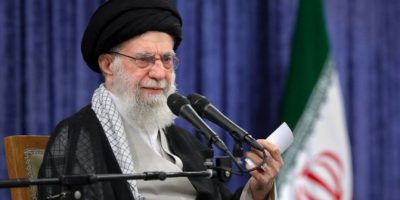Building Bridges: The Impact of Pak-UK Security Cooperation

Abdullah Hamid Gul
The Historical Foundations and Evolution of UK-Pakistan Relations
The relationship between the United Kingdom and Pakistan is deeply rooted in history, dating back to the colonial era. When Pakistan gained independence in 1947, it maintained close ties with the UK, based on shared political, economic, and cultural interests. Over the years, this bilateral relationship has evolved, shaped by global geopolitics, security challenges, and a robust Pakistani diaspora in the UK. The Commonwealth connection and diplomatic cooperation have reinforced this relationship, while trade and defense partnerships have been pivotal in solidifying it. Today, as the UK navigates its post-Brexit landscape and Pakistan faces the complexities of South Asian geopolitics, both countries are looking to strengthen their partnership. This article explores the future of UK-Pakistan relations, with a particular focus on economic security, international cooperation, and global security collaboration.
Strategic Cooperation and Post-9/11 Partnership in UK-Pakistan Relations
UK-Pakistan relations have long been anchored in strategic cooperation, particularly in areas like counterterrorism, defense, and intelligence sharing. After 9/11, Pakistan became a critical partner for the UK in the global War on Terror. British aid and assistance have played a key role in stabilizing Pakistan’s security situation, particularly in the tribal regions. In recent years, Brexit has reshaped the UK’s foreign policy, leading to a renewed focus on strengthening trade relations with non-European countries. Pakistan, with its growing economy and strategic location, has become an increasingly important partner. Bilateral trade between the two nations stands at nearly £3 billion annually, with potential for further growth. The UK’s Generalized Scheme of Preferences (GSP) has provided Pakistan with favorable trade terms, allowing its exports—particularly textiles—to thrive in the UK market.
Defense Cooperation and Economic Security in UK-Pakistan Relations
Defense cooperation between the UK and Pakistan remains strong, with joint military exercises and capacity-building programs aimed at enhancing Pakistan’s counterterrorism capabilities. Additionally, the UK continues to provide significant development aid to Pakistan, focusing on education, healthcare, and poverty alleviation.
Economic security is central to the future of UK-Pakistan relations. Pakistan has faced numerous financial challenges in recent years, including a high public debt burden, a volatile currency, and a large current account deficit. For Pakistan, strengthening economic ties with key partners like the UK is essential to ensure financial stability and growth. The UK has long been one of Pakistan’s largest development partners, providing aid for education, infrastructure, and healthcare. However, there is now a growing focus on trade and investment as key drivers of economic security. British companies are increasingly exploring investment opportunities in Pakistan, particularly in sectors like technology, telecommunications, and renewable energy.
Post-Brexit Trade Opportunities and the Potential for a UK-Pakistan Free Trade Agreement
Post Brexit reshaping the UK’s foreign trade policy, new opportunities are emerging for enhanced trade cooperation with Pakistan. As a Commonwealth member with a rapidly expanding economy, Pakistan is an attractive partner for the UK. Bilateral trade is already significant, but there is considerable potential for growth, particularly in sectors like agriculture, information technology, and textiles. A key priority for both countries in the post-Brexit era is negotiating a comprehensive trade agreement. A free trade agreement (FTA) between the UK and Pakistan could significantly boost Pakistan’s exports, while offering the UK access to South Asia’s dynamic market. The UK’s departure from the EU allows it to forge closer trade ties with Commonwealth countries, and Pakistan stands to benefit from this shift.
The Role of the China-Pakistan Economic Corridor (CPEC) and UK’s Involvement
The China-Pakistan Economic Corridor (CPEC) is another key factor in Pakistan’s economic security. As part of China’s Belt and Road Initiative (BRI), CPEC is a multi-billion-dollar infrastructure project aimed at improving Pakistan’s roads, railways, and energy sector. While CPEC is primarily a China-Pakistan partnership, there are opportunities for the UK to play a supportive role. The UK has expressed interest in collaborating with Pakistan on infrastructure projects, particularly in renewable energy and digital connectivity. By leveraging its expertise in these areas, the UK can contribute to Pakistan’s economic development while strengthening bilateral ties. However, the UK will need to carefully balance its involvement in CPEC with its broader foreign policy, which includes maintaining strategic alliances with the US, a country that views China’s growing influence in South Asia with caution.
Expanding UK-Pakistan Cooperation on Climate Change and Sustainability
As global challenges become increasingly interconnected, UK-Pakistan cooperation has expanded into new areas like climate change, migration, and public health. Pakistan is one of the countries most vulnerable to climate change, with rising temperatures, floods, and droughts posing significant threats to food security and economic stability. The UK, a leader in global climate action, has partnered with Pakistan to mitigate the effects of climate change through joint initiatives in renewable energy, reforestation, and sustainable agriculture. Cooperation on climate resilience is likely to intensify in the coming years, with both countries recognizing the urgent need for collective action.
UK-Pakistan Cooperation on Migration and the Role of the Pakistani Diaspora
Migration is another area where UK-Pakistan cooperation has proven effective. Pakistan continues to host large numbers of Afghan refugees, and the UK has played a key role in supporting Pakistan’s efforts to manage these populations. As regional instability persists, particularly in Afghanistan, migration flows could increase, necessitating further collaboration between the UK and Pakistan on refugee integration, humanitarian assistance, and border management.
The UK is home to one of the largest Pakistani diaspora communities, with over 1.6 million people of Pakistani origin residing there. This community has played a significant role in strengthening bilateral relations by contributing to the UK’s economy, culture, and political landscape. Education is a key motivator for many Pakistanis moving to the UK. In recent years, the number of Pakistani students studying in the UK has steadily increased, with 8,500 Pakistani students enrolling in UK institutions in 2022 alone. The UK is regarded as a premier destination for higher education, offering a wide range of academic opportunities. For Pakistani students, UK universities provide high-quality education, exposure to global networks, and the potential to contribute to Pakistan’s economy upon their return. Over the years, thousands of Pakistanis have migrated to the UK for education, employment, and better living conditions. According to the UK Home Office, Pakistan ranked among the top five countries for visa applications to the UK in 2023. This includes a significant number of skilled workers and professionals settling in the UK, contributing to the British economy across sectors like healthcare, engineering, and information technology.
The Pakistani diaspora has also had a positive impact on Pakistan’s economy through remittances, with over £1 billion annually sent back home, supporting families and contributing to national development. The presence of this vibrant community is a cornerstone of UK-Pakistan relations, fostering cultural and economic ties that benefit both nations.
Opportunities for UK-Pakistan Relations Under New UK Government Leadership
The recent change in the UK government has opened up new possibilities for UK-Pakistan relations. Under the leadership of the new Prime Minister, the UK is expected to adopt a more outward-looking foreign policy, with an emphasis on strengthening ties with Commonwealth countries and emerging economies like Pakistan. This government’s focus on expanding global trade networks, enhancing diplomatic engagement, and promoting green energy aligns well with Pakistan’s development needs. The new UK government has signaled its intention to increase trade and investment with Commonwealth countries, including Pakistan. With a renewed emphasis on economic diplomacy, the UK will likely prioritize the negotiation of a free trade agreement with Pakistan, providing both countries with opportunities for growth. This government’s commitment to lowering trade barriers and encouraging British businesses to invest abroad could lead to increased FDI in Pakistan’s technology, energy, and infrastructure sectors.
Climate Action as a Central Focus of the New UK Government’s Foreign Policy and UK-Pakistan Collaboration
One of the key priorities of the new UK government is climate action. The UK has pledged to become a global leader in tackling climate change, and it is expected that this agenda will play a central role in its foreign policy. For Pakistan, which is already collaborating with the UK on climate resilience initiatives, this focus presents an opportunity to deepen cooperation in areas like renewable energy, disaster management, and green infrastructure development.
Continued Focus on Security and Defense Cooperation Amidst New Government Leadership in the UK and Pakistan
Security and defense cooperation are likely to remain cornerstones of the UK-Pakistan relationship. The new UK government has expressed its commitment to maintaining strong defense ties with key partners, and Pakistan’s strategic importance in South Asia ensures that it will remain a priority. Joint military training, intelligence sharing, and counterterrorism efforts are expected to continue, with the UK playing an active role in enhancing Pakistan’s security capabilities.
The recent election of a new government in Pakistan also provides an opportunity to strengthen UK-Pakistan relations. The new leadership, which has placed economic revival and anti-corruption at the top of its agenda, is expected to work closely with the UK on trade, governance, and development.
Related News

Martyr’s Blood Speaks, Rise, Muslim Ummah
Sadaf Noreen Awan The martyrdom of Syed Ali Khamenei (1939-2026) along with his family includingRead More

After Khamenei: Iran, America and the World
Dr. Muhammad Akram Zaheer The spectre of a direct war between Iran and the UnitedRead More


Comments are Closed